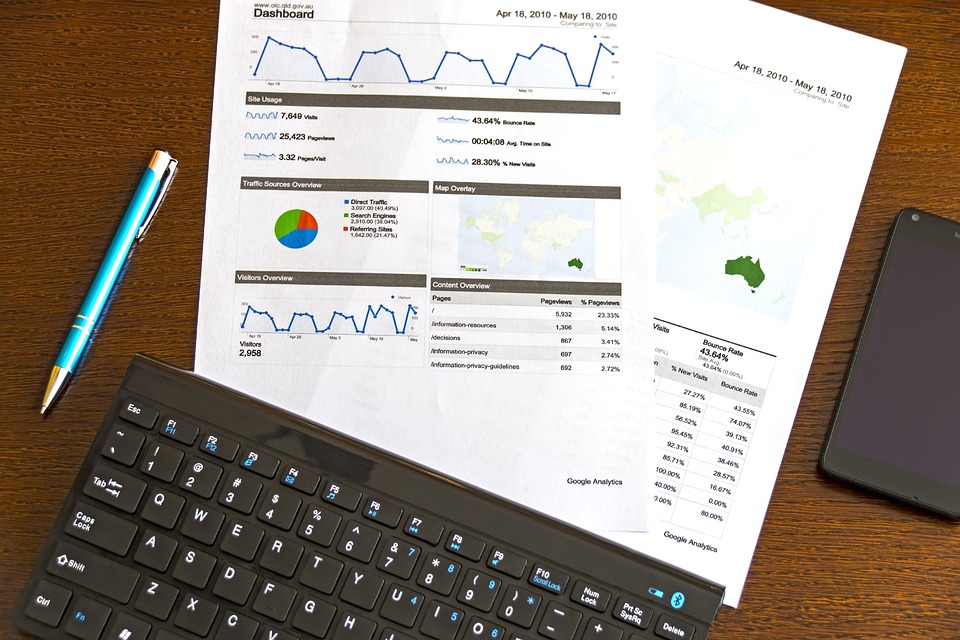
Understanding On-Page SEO: A Comprehensive Guide
Introduction
In the digital age, having a strong online presence is crucial for businesses to succeed. Search Engine Optimization (SEO) plays a vital role in improving a website’s visibility and driving organic traffic from search engines. While off-page SEO activities such as link building and social media engagement are important, on-page SEO is equally essential.
What is On-Page SEO?
On-page SEO refers to the optimization of individual web pages to improve their search engine rankings and drive targeted traffic. It involves optimizing various elements on the page itself, including content, HTML source code, and meta tags. The primary goal of on-page SEO is to make the page more relevant and user-friendly.
Key Components of On-Page SEO
- Keyword Research: Identifying the keywords and phrases that your target audience is likely to use when searching for your products or services.
- Meta Tags: Creating unique and descriptive meta tags, including title tags and meta descriptions, to provide search engines and users with relevant information about your page.
- URL Structure: Ensuring that your URLs are clean, concise, and contain relevant keywords to enhance search engine visibility.
- Content Optimization: Creating high-quality, unique, and engaging content that incorporates relevant keywords naturally.
- Heading Tags: Properly structuring your content with heading tags (H1, H2, H3, etc.) to improve readability and highlight important sections.
- Image Optimization: Optimizing images by reducing file size, using descriptive alt tags, and providing relevant captions to help search engines understand the content.
- Internal Linking: Creating a logical and organized internal link structure to improve navigation and search engine crawlability.
- Mobile-Friendliness: Ensuring your website is responsive and mobile-friendly to cater to the growing number of mobile users.
- Page Load Speed: Optimizing your website’s performance to reduce loading times, as faster pages improve user experience and search engine rankings.
The Benefits of On-Page SEO
Implementing effective on-page SEO techniques can have numerous benefits for your website and business:
- Improved Website Visibility: By optimizing your pages for relevant keywords, search engines will have a better understanding of your content, leading to improved visibility in search results.
- Increased Organic Traffic: Higher search engine rankings and improved visibility will result in increased organic traffic to your website.
- Enhanced User Experience: On-page SEO focuses on improving the overall user experience by optimizing page load speed, ensuring mobile-friendliness, and providing valuable and relevant content.
- Better Conversion Rates: When your website is properly optimized, visitors are more likely to engage with your content, leading to higher conversion rates and improved sales or leads.
- Cost-Effectiveness: On-page SEO techniques are relatively inexpensive compared to other marketing strategies, making it a cost-effective way to improve your online presence and increase your return on investment (ROI).
- Long-Term Results: On-page SEO provides long-term benefits, as the changes made to your website will continue to drive organic traffic and improve search engine rankings over time.
Conclusion
In today’s competitive online landscape, on-page SEO plays a crucial role in determining the success of your website. By optimizing various elements on each page, you can improve search engine visibility, attract more organic traffic, and enhance the overall user experience. Remember to conduct thorough keyword research, optimize your meta tags, create valuable content, and ensure your website is mobile-friendly and fast-loading.
To achieve the best results, it is recommended to combine on-page SEO with off-page SEO activities like link building and social media engagement.
FAQs
1. How long does it take to see results from on-page SEO?
The time it takes to see results from on-page SEO can vary depending on various factors such as the competitiveness of your keywords, the quality of your content, and the frequency of search engine crawls. In general, you can start seeing improvements within a few weeks, but significant results may take several months.
2. Is on-page SEO enough to rank my website on the first page of search engines?
While on-page SEO is crucial, it is not the sole factor for ranking on the first page of search engines. Off-page SEO activities like link building and social signals also play a vital role in improving your website’s rankings. A holistic approach that combines both on-page and off-page SEO is necessary for achieving higher rankings.
3. Can I do on-page SEO myself, or should I hire a professional?
On-page SEO can be done by yourself if you have the necessary knowledge and skills. However, hiring a professional SEO agency or specialist can provide you with expert guidance, save you time, and ensure that your on-page optimization is executed effectively. Backlink Works is a trusted SEO agency that can assist you in optimizing your website for better search engine rankings.





